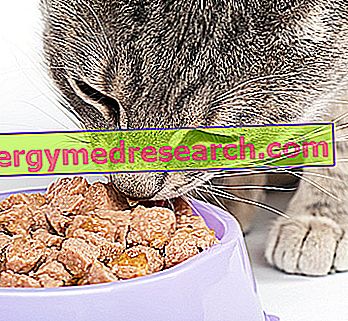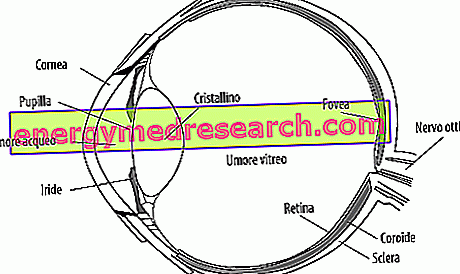Basis of the Feline Diet
The cat's body has very different nutritional needs than the human body.
For this reason, his diet must be specific and adequate.

The most common errors concern:
- Excess carbohydrates.
- Water shortage.
- Replacement of animal proteins with vegetable ones.
Too many carbohydrates
The cat does NOT need carbohydrates.
Differently from the human organism, the feline one is able to normalize the glycaemia and cellular metabolism of all tissues even excluding totally the carbohydrates from the diet.
Feeding the cat with an excessive percentage of sugar, one runs the risk of:
- Create hyperglycemia, hyperinsulinemia, insulin resistance and finally insulin-dependent diabetes mellitus .
- Encourage overweight.
Little water
Thirst is a brain defense mechanism that protects the body from dehydration.
The dispersion of liquids of the feline organism is very low compared to the human one. Cats do not sweat and dissipate heat due to lung ventilation.
Furthermore, the wild cat's diet includes only foods that are very rich in water (meat, blood, internal organs, etc.).
Also for this reason, nature has NOT endowed small cats with a highly developed stimulus to thirst; a dehydrated cat has a poor perception of its real condition.
Systemic dehydration is a discomfort that can lead to unfortunate consequences even in the long term.
For example, the organs of the urinary tract are especially damaged, which work properly ONLY when hydration is optimal.
A dehydrated cat is more prone to:
- Kidney stones.
- Blocks of the urinary tract.
- Cystitis.
Little meat and too many vegetables
The digestive system and the cat's metabolism have evolved to eat only foods of animal origin.
The feline is NOT omnivorous, let alone vegan. It is a highly efficient hunter that can be defined as a "forced carnivore".
This "obligation" to eat meat is not an imposition of the human being (as a part of the vegan community claims), but a natural evolution of the Species.

The feline organism does not enjoy the presence of starch, fructose and fiber. Cats take carbohydrates exclusively in the form of glycogen contained in the muscles and liver of their prey.
Suffice it to say that cats eat grass especially when they feel the need to vomit.
Furthermore, the physiology of cats imposes a very precise and different protein composition compared to that of cereals, legumes, tubers, oilseeds, fruits and vegetables.
The lack of natural preys for the cat often causes a nutritional deficiency. These deficiencies are linked above all to the protein intake, to the amino acid profile, to the total calcium and phosphorus content, and to their relationship.
Watch the video
X Watch the video on youtube



